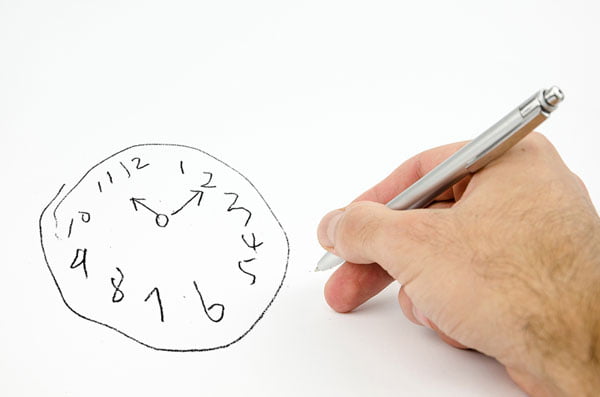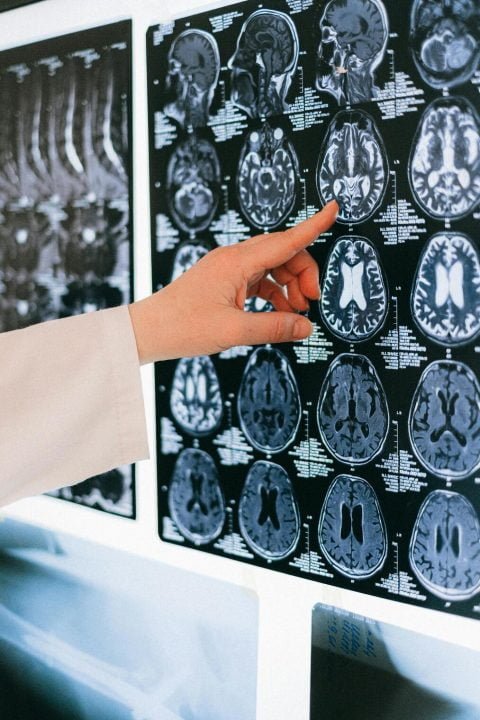If you’re here, you’re probably curious about cognitive tests for seniors and how they can help seniors. Whether you’re a senior yourself or a caregiver, understanding these tests is crucial for early detection of cognitive decline and dementia. This guide will walk you through various types of cognitive assessments, their purposes, and what to expect. We’ll cover everything from basic tests to more specific assessments like the 30-question cognitive test and the mini cog test. Let’s dive in and explore these tools designed to support our cognitive health as we age.
What is the Basic Cognitive Test for seniors?
Cognitive test questions for seniors are essential tools for evaluating a person’s cognitive abilities, including memory, problem-solving skills, and other mental functions. The basic cognitive test for seniors often includes simple tasks and questions that assess these skills. These tests help identify early signs of cognitive decline, allowing for timely intervention.
The basic test usually covers:
- Memory recall: Remembering words, numbers, or events.
- Orientation: Knowing the date, time, and location.
- Attention and concentration: Following instructions and staying focused.
- Language skills: Understanding and using language properly.
These assessments are often conducted by healthcare professionals, such as neurologists or geriatricians, and can be part of a regular check-up or conducted if there are concerns about memory or cognitive functions.
What is the 30 question Cognitive Test for Dementia?
The 30-question cognitive tests, also known as the Mini-Mental State Examination (MMSE), is a widely used tool to assess cognitive function. It evaluates various cognitive abilities, including orientation, attention, memory, language, and visuospatial skills.
This test is particularly useful in:
- Identifying cognitive impairment: It helps in detecting mild cognitive impairment or dementia.
- Monitoring changes over time: Regular testing can track the progression of cognitive decline.
- Guiding treatment plans: Results can help healthcare providers determine the best course of action.
The MMSE (Mini-Mental State Examination) is a simple and effective way to assess cognitive function, making it a common choice in both clinical settings and research.
What are the questions on a Cognitive Test for seniors?
The questions on the MMSE cover a range of cognitive abilities. What is the cognitive test for seniors? Here you go:
- Orientation to time: What is the year? Season? Date? Day of the week? Month?
- Orientation to place: Where are we now? (state, country, town, etc.)
- Immediate recall: Repeat these words: “apple,” “penny,” “table.”
- Attention and calculation: Spell “world” backward or subtract 7 from 100, and keep subtracting 7.
- Delayed recall: Recall the three words mentioned earlier.
- Naming objects: What is this called? (point to a pencil, watch)
- Repeating sentences: Repeat a simple sentence, like “No ifs, ands, or buts.”
- Following instructions: Follow a three-stage command, such as “Take a paper in your hand, fold it in half, and put it on the floor.”
- Reading and obeying: Read and follow a written command, such as “Close your eyes.”
- Writing a sentence: Write a complete sentence.
- Copying a design: Copy a complex design, like two intersecting pentagons.
These tasks help evaluate different aspects of cognitive function and provide a comprehensive view of an individual’s cognitive health.

What is the 3 word test for Dementia?
The 3-word test is a simple yet effective tool used in Cognitive Test for Seniors to evaluate short-term memory. During the test, the healthcare professional will ask the patient to remember three unrelated words, such as “apple,” “penny,” and “table.” After a few minutes, the patient is asked to recall these words.
The test serves several purposes:
- Assessing memory function: It helps in determining if there are memory issues.
- Identifying early signs of dementia: Difficulty recalling the words may indicate cognitive decline.
- Simple and quick assessment: It’s a quick way to check memory without needing complex equipment.
This test is often used as part of a larger cognitive assessment and can provide valuable insights into a person’s memory capabilities.
What is the 5 word memory test?
The 5-word memory test is another tool used to evaluate memory function. In this test, five words are presented to the patient, who is then asked to repeat them immediately and again after a short delay.
The 5-word memory test is helpful for:
- Assessing both immediate and delayed recall: It checks how well a person can remember and retrieve information.
- Detecting specific memory issues: Difficulty in recalling all five words can indicate problems with memory retention.
- Monitoring changes in memory: Repeating the test over time can help track changes in memory function.
This test is part of a comprehensive assessment and can be useful in diagnosing conditions like Alzheimer’s disease.
How to remember three words in a Cognitive Test?
Remembering three words in a cognitive test for seniors can be challenging, especially for those experiencing cognitive decline. Here are some tips to help:
- Repetition: Repeating the words several times can help imprint them in your memory.
- Visualization: Picture the words in your mind. For example, imagine an apple, a penny, and a table in a single scene.
- Chunking: Group the words into a memorable phrase or story.
- Association: Link the words to something familiar, like a personal experience or a known object.
These strategies can improve recall during the test and are useful techniques for general memory improvement.
What is the Mini Cog Test?
The Mini Cog test is a brief, three-minute test used to screen for cognitive impairment. It combines two common tools: the 3-word recall test and the clock-drawing test. Here’s how it works:
- 3-Word Recall: The patient is asked to remember and later recall three unrelated words.
- Clock Drawing: The patient is then asked to draw a clock showing a specific time, such as 10 past 11.
The Mini Cog test is advantageous because:
- It’s quick and easy to administer.
- It assesses both memory and executive function.
- It’s suitable for various healthcare settings.
This test is particularly useful for early detection of dementia and can be a valuable tool for healthcare providers.
What is the new 5 minute test for Dementia?
The new 5-minute test for dementia is designed to be a quick and efficient screening tool. Cognitive Test for Seniors includes tasks that assess various cognitive functions, such as memory, attention, and problem-solving.
The benefits of this test include:
- Time efficiency: It can be completed in a short amount of time.
- Comprehensive assessment: Despite its brevity, it covers a range of cognitive functions.
- Early detection: It helps identify cognitive issues early, allowing for prompt intervention.
This test is gaining popularity due to its effectiveness and ease of use in various healthcare settings.
What is the quick Cognitive Test for Seniors?
The quick cognitive test for seniors is designed to provide a fast and straightforward assessment of cognitive function. These tests often include simple tasks and questions that assess memory, attention, language, and problem-solving skills.
The benefits of quick cognitive tests questions for seniors include:
- Convenience: They can be administered quickly, often in a matter of minutes.
- Accessibility: They can be used in various settings, including clinics, homes, and community centers.
- Early detection: They help identify cognitive issues early, allowing for timely intervention.
These tests are valuable tools for regular cognitive check-ups, especially for seniors.
Is there a free online cognitive test for seniors?
Yes, there are free online Cognitive Test for Seniors. These tests can be a convenient way to assess cognitive function from the comfort of your own home. However, it’s essential to choose reputable sources, such as those provided by healthcare organizations or universities.
Some reliable online cognitive tests include:
- The Cognitive Function Test: Available on various health websites, it assesses memory, attention, and other cognitive functions.
- The SAGE Test: Developed by Ohio State University, it’s a self-administered test that screens for cognitive issues.
While online tests can be helpful, they should not replace professional medical advice or diagnosis. Always consult with a healthcare professional if you have concerns about cognitive health.
Can I test myself for Dementia?
Self-testing for dementia is possible through various tools and tests, including online cognitive assessments. However, there are limitations to self-testing:
- Lack of professional interpretation: Test results may be difficult to interpret without a healthcare professional’s input.
- Limited scope: Self-tests may not cover all aspects of cognitive function.
- Potential for anxiety: Taking these tests without proper guidance can cause unnecessary worry.
While self-testing can provide some insights, it’s crucial to consult with a healthcare provider for a comprehensive evaluation and accurate diagnosis.
What is the famous face test for Dementia?
The famous face test is used to assess recognition memory, which can be impaired in dementia. In this test, patients are shown pictures of well-known individuals and asked to identify them.
The test helps in:
- Evaluating recognition memory: It assesses the ability to recognize familiar faces.
- Identifying specific types of memory loss: It can help differentiate between different types of dementia, as some affect recognition memory more than others.
- Providing a more engaging test experience: Recognizing famous faces can be more engaging and less stressful for patients.
This test is often used alongside other Cognitive Test for Seniors to provide a comprehensive evaluation.
What is the Self Cognitive Test for Dementia?
A self cognitive test for dementia is a tool that individuals can use to assess their cognitive function. These tests often include questions and tasks that evaluate memory, attention, language, and other cognitive skills.
The benefits of self cognitive tests for seniors include:
- Convenience: They can be taken at any time, providing a quick snapshot of cognitive health.
- Privacy: They allow individuals to assess their cognitive function in a private setting.
- Early detection: They can help identify early signs of cognitive decline.
However, self-tests should not replace professional medical evaluations. If there are concerns about cognitive health, it’s essential to consult with a healthcare provider.
What is the most used Cognitive Test for seniors tool?
The most widely used cognitive assessment tool is the Mini-Mental State Examination (MMSE). This test is popular because of its simplicity, reliability, and ability to assess various cognitive functions.
Key features of the MMSE include:
- Comprehensive assessment: It covers memory, attention, language, and visuospatial skills.
- Ease of administration: It can be administered quickly and requires minimal equipment.
- Use in diverse settings: It’s used in clinical, research, and community settings worldwide.
The MMSE is a valuable tool for diagnosing and monitoring cognitive impairment, making it a standard choice in many healthcare settings.
What is the most accurate test for Dementia?
The most accurate test for diagnosing dementia is often a comprehensive assessment Cognitive Test for Seniors that includes the following:
- Detailed medical history: Including family history and any previous cognitive issues.
- Neuropsychological testing: These tests evaluate various cognitive functions in-depth.
- Imaging tests: Such as MRI or CT scans, which can help identify changes in the brain.
- Blood tests: To rule out other conditions that might cause cognitive symptoms.
No single test can diagnose dementia with complete accuracy, but a combination of these methods provides a thorough assessment.
Can you pass a Memory Test and still have Dementia?
Yes, it is possible to pass a memory test and still have dementia. Some forms of dementia, such as frontotemporal dementia, may initially affect areas of the brain not primarily involved in memory.
Other factors include:
- Early-stage dementia: Memory may not be significantly affected in the early stages.
- Compensatory strategies: Some individuals develop strategies to compensate for memory deficits.
- Variability in symptoms: Dementia affects each person differently, and symptoms can vary widely.
Therefore, a Cognitive Test for Seniors that includes other cognitive functions and behavioral observations is essential for an accurate diagnosis.
What are the first signs of Cognitive Decline?
One of the first signs of cognitive decline is often subtle changes in memory, such as forgetting recent events or conversations. These changes can be mild and may go unnoticed initially. However, they can become more apparent over time.
Other early signs include:
- Difficulty with complex tasks: Such as managing finances or planning activities.
- Problems with language: Struggling to find the right words or following conversations.
- Changes in mood or behavior: Increased irritability, depression, or withdrawal from social activities.
Recognizing these early signs can lead to timely intervention and support.
What is the trigger for Dementia behavior?
The number one trigger for dementia-related behavior is often unmet needs or discomfort. This can include physical discomfort, such as pain or hunger, or emotional needs, such as loneliness or anxiety.
Common triggers include:
- Environmental changes: Moving to a new place or changing routines.
- Health issues: Pain, infections, or medication side effects.
- Emotional distress: Feelings of confusion, fear, or frustration.
Understanding and addressing these triggers can help manage behavior and improve the quality of life for those with dementia.
What disorder is misdiagnosed as Dementia?
Depression is often misdiagnosed as dementia, especially in older adults. Both conditions can cause similar symptoms, such as memory problems, difficulty concentrating, and changes in mood.
Key differences include:
- Onset of symptoms: Depression symptoms can appear suddenly, while dementia symptoms typically develop gradually.
- Mood changes: Depression often involves persistent sadness, while dementia may cause fluctuating emotions.
- Response to treatment: Depression symptoms can improve with treatment, while dementia symptoms generally progress over time.
Accurate diagnosis is crucial for appropriate treatment and support.
What are Three Golden Rules of Dementia?
The three golden rules of dementia care are:
- Respect and dignity: Always treat individuals with dementia with respect and dignity, valuing their personhood and experiences.
- Person-centered care: Tailor care to the individual’s needs, preferences, and history. Understand their unique challenges and strengths.
- Clear communication: Use simple, clear language and positive body language. Be patient and attentive, and avoid arguing or correcting unnecessarily.
These principles are essential for providing compassionate and effective care for individuals with dementia.
Start by taking a cognitive health check-up to better understand your brain health and take proactive steps.
A basic cognitive test is a series of questions or tasks designed to assess mental functions like memory, attention, language, and problem-solving skills. These tests help healthcare providers identify potential cognitive decline or dementia.
The most common 30-question cognitive test is the Mini-Mental State Examination (MMSE). It evaluates orientation (time, place, person), memory, attention, calculation, language, and constructional abilities.
Cognitive tests typically include questions about:
Personal information (name, age, address)
Current date and location
Short-term memory (remembering a list of words)
Long-term memory (past events)
Attention and concentration (counting backward, following commands)
Language skills (naming objects, repeating phrases)
Visual-spatial abilities (copying a simple drawing)
The 3-word test assesses short-term memory. The person is given three unrelated words to remember, and after a brief delay, they are asked to recall them.
The Mini-Cog is a brief cognitive screening tool that combines a short-term memory task (recalling three words) with a clock-drawing test. It’s a quick way to assess cognitive function.
Yes, there are free online cognitive tests available. However, it’s important to remember that these tests cannot replace a professional evaluation. Online tests can be a starting point, but they shouldn’t be relied on for diagnosis.
While self-testing can provide some general information, it’s not a reliable way to diagnose dementia. If you’re concerned about cognitive changes, consult with a healthcare professional for a proper evaluation.
The Mini-Mental State Examination (MMSE) is one of the most widely used cognitive assessment tools. It’s simple to administer and provides valuable information about cognitive function.
Early signs of cognitive decline can include:
Memory loss that interferes with daily life
Difficulty with familiar tasks
Problems with language
Changes in mood or behavior
Challenges with reasoning or problem-solving
The three golden rules of dementia care are:
Respect and dignity: Treat the person with dementia with respect and dignity at all times.
Person-centered care: Focus on the individual’s needs, preferences, and abilities.
Clear communication: Use simple, clear language and avoid arguments or confrontations.




